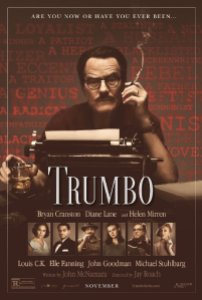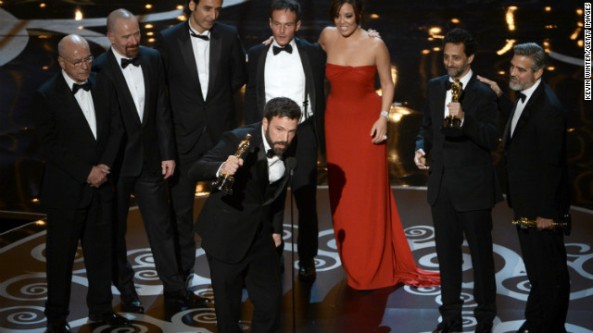 J.J. Abrams projects tend to be more interesting as viral marketing campaigns than as actual films. Not so with “10 Cloverfield Lane,” a tightly-wound chamber drama and horror thriller that bares ties to the 2007 surprise blockbuster “Cloverfield” in name only.
J.J. Abrams projects tend to be more interesting as viral marketing campaigns than as actual films. Not so with “10 Cloverfield Lane,” a tightly-wound chamber drama and horror thriller that bares ties to the 2007 surprise blockbuster “Cloverfield” in name only.
In a jarring and harried opening, Michelle (Mary Elizabeth Winstead) is on the run, not from an impending natural disaster, but from a relationship. She drives to the middle of nowhere to escape her problems and gets run off the road in a violent collision. The disorienting, turbulent moment, with a jolting cut away in image and sound to reveal the title credits, speaks to the film’s style. First time director Dan Trachtenberg plays on what we think we know throughout “10 Cloverfield Lane.”
When Michelle wakes, she’s cuffed to a pipe in a small bunker. An IV is attached to her arm and she has a large, locking brace on her knee. In a panic, she manages to reach across her room to her cellphone, only to find she has no service underground. Her captor is Howard (John Goodman), who tells her, “I’m going to keep you alive.”
The line has multiple connotations. Howard found Michelle crashed on the side of the road and brought her in, but he has to keep her prisoner and orders her to behave. He explains that outside the walls of his bunker, an “attack” has taken place rendering the air contaminated and uninhabitable. Michelle is skeptical. She sees two mutilated pigs outside a window but also a blood stain and dent on the side of Howard’s truck that suggests he abducted her and lied to keep her locked up.
Then there’s Emmet (John Gallagher Jr.), a dopey, good-ol country boy with a broken arm. Did Howard break it? He’s not a captive, but doesn’t seem to be on Howard’s good side. Could they be in cahoots, or can he be trusted? He claims he saw the attack, something he’s never seen before, but only believes the air is poisonous because Howard said so.
“How do you know that,” Michelle prods. Time and again Trachtenberg pushes the question and makes Michelle a prisoner of circumstance, torn between the danger both inside the bunker and out. Howard could be sincere or devious, sane or delusional, or maybe a bit of all four. Goodman speaks calmly, but firmly with a lightly scolding, parental tone that complicates the dynamic between Howard, Michelle and Emmet. He talks fondly of his dead daughter and shows Michelle similar affection.
Trachtenberg’s visual tone has him playing on the contrast between claustrophobic close-up shots and emptier wide shots. There’s little concrete sense of time, and even the bunker’s confines run hot and cold. One scene is an intimate conversation between Michelle and Emmet between two walls, his backdrop a frigid blue and hers a warmer pink. There’s no certainty as to what they’re really thinking about the other.
While the question of what lies outside the bunker provides constant suspense and curiosity, the ultimate reveal almost can’t help but be a letdown. The conflict between Howard and Emmet doesn’t feel as well developed as could be, Howard becomes more of a traditional monster down the line, and the breathtaking ending feels like an out-of-left field twist that overwhelms the film’s small scale beginning. And if “Cloverfield” got anything right, it’s that the protagonists at its center were not heroes. Michelle has a weirdly innate talent for shimmying through air vents, crafting hazmat suits from household items and performing acrobatics to evade her captor.
A recent article in Vulture suggested that “10 Cloverfield Lane” could change the way Hollywood approaches movie franchises. The original story by Josh Campbell, Matthew Stuecken and with help from Damien Chazelle (“Whiplash”) was written without “Cloverfield” in mind but contains some of that film’s DNA. If bending the parameters of a small story can lead to more compelling, original ideas such as this getting to the screen, that’s a good tradeoff.
3 ½ stars






